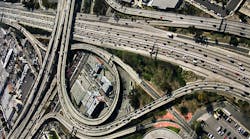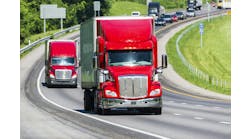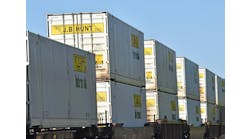Infrastructure Bill Seen Difficult to Pass Amid Funding Disputes
House Majority Leader Steny Hoyer said passage of legislation to improve U.S. infrastructure isn’t likely this year without a consensus that includes President Donald Trump and congressional Republicans over how to pay for it.
“Getting infrastructure done means paying for it,” said Hoyer of Maryland. “And while everybody wants to invest in infrastructure, it is more problematic from many perspectives of how you pay for that.”
The comments came as the tax-writing Ways and Means Committee was told by the leaders of the Chamber of Commerce, AFL-CIO, American Trucking Associations and American Society of Civil Engineers that they endorse raising the gas tax by 20 to 25 cents over the next five years to pay for roads, bridges and other infrastructure.
Trump said in his State of the Union address last month that he’s eager to work with lawmakers on a public works plan. But Trump hasn’t championed ways to pay for it, and he suggested Tuesday that investigations Democrats have begun into him, his family and business could jeopardize efforts to get an infrastructure bill passed.
“I’d rather see them do legislation, we negotiate out legislation,” Trump told reporters. “We have so many things, things we agree on like infrastructure, but they want to focus on nonsense.”
Trump Plan
Hoyer said passage also will depend on whether Trump will move beyond his proposal last year that would provide $200 billion in federal spending over a decade, mostly to spur states, localities and the private sector to spend the balance of a promised $1.5 trillion in infrastructure improvements. Hoyer said Democrats want more “meaningful” federal funding.
Ways and Means Chairman Richard Neal of Massachusetts told reporters that he is aiming to develop an infrastructure funding proposal in the coming months, but it would have to be developed "in tandem" with the White House, including public endorsements from Trump. Otherwise, Republicans would attack Democrats for any revenue increases they propose for improving roads and bridges, lawmakers said.
“We need a public commitment from President Trump and that is very difficult to get,” Texas Democrat Lloyd Doggett said, adding that without Republican commitments, "we will have a true bridge to nowhere."
Republicans also expressing skepticism a deal can be made.
"It’s the trillion dollar question, how are you going to pay for it," said New York’s Tom Reed. “There is no trust.”
Neal said he wants to bring back Build America Bonds, subsidized debt that former President Barack Obama’s administration created to encourage states and cities to increase spending on public works. “I think it’s a very efficient way to raise revenue,’’ Neal said.
By Erik Wasson, Laura Litvan and Mark Niquette



